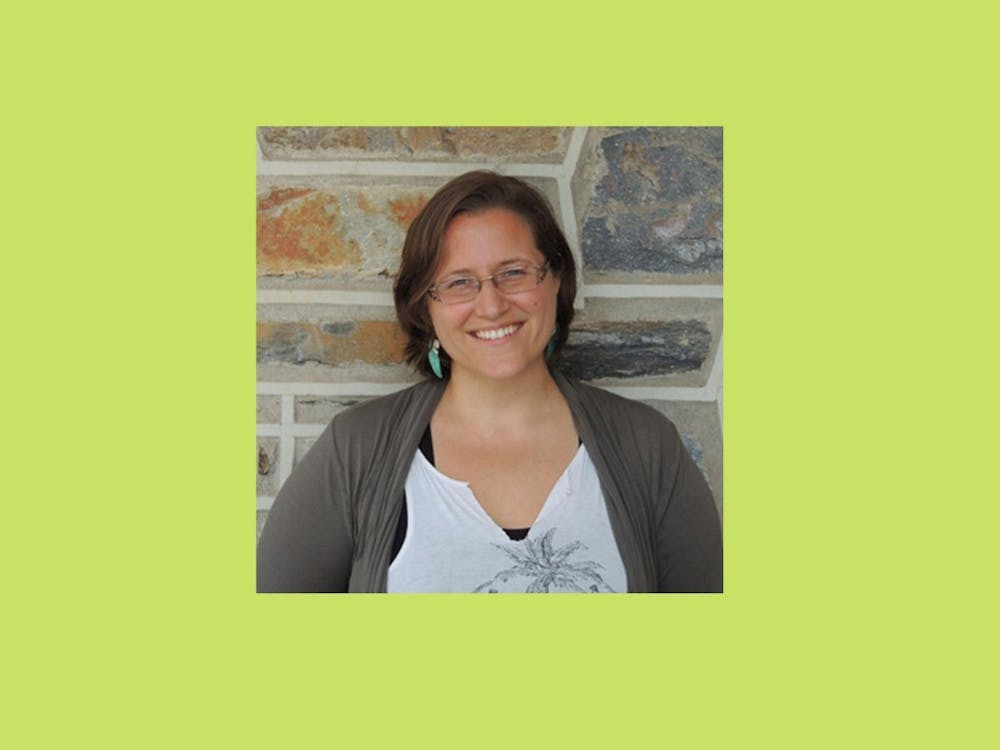Every vice president knows they may have to take over for the president, but rarely does that situation come to fruition.
The sitting president of the Graduate and Professional Student Council, Anthony Monroe, stepped down from the position in October, leaving vice president Alyssa Florwick to fill his shoes. As GPSC President, Florwick, a Ph.D. student in biochemistry, aims to “carry forward the visions of the GPSC throughout the year” by continuing efforts with the Community Pantry, centralizing resources and supporting international students.
“We’d already laid a lot of foundational work,” she explained. “I talked to Anthony earlier in the year about some of the goals he wanted to carry forward. Highlighting the Community Pantry is a continued mission of ours, and I think we’re really broadcasting that a lot.”
From its founding in 2017, the Community Pantry has provided resources like food, professional clothing and childcare items to graduate students. GPSC will host a campus food insecurity symposium Feb. 14 based on a collaboration between Duke, the University of North Carolina Chapel Hill and Durham Technical Community College, Florwick said.
“It’s highlighting essentially the issues, the stigma around food insecurity and the ways of moving forward about how campuses can support students,” she said.
Florwick wants GPSC to continue to centralize and highlight various campus resources for students through projects such as the existing Resource Directory Task Force. She emphasized that though there is a bounty of resources available to help Duke students, “they’re just really not centralized and broadcasted in a way that students are aware of.”
She is currently working on a resource directory page on the GPSC website that is expected to be published by April.
Florwick also expressed an interest in working toward expanding resources available for international students at Duke. She hopes to help international students receive internships to enhance their graduate careers.
“The general sentiment is that, especially students who come internationally and come with families and their spouses, may not be able to get a visa to work and don’t often—some indication that there’s a financial need there,” Florwick said.
She explained that schools like the Sanford School of Public Policy have a lot of professional degrees where “internship experience is really integral for their success.” However, there is “a little bit of a disconnect between how students know they can get those internships, if they knew beforehand that they could get those,” she added.
Under Florwick’s leadership, GPSC created the Task Force on International Student Affairs. The representatives are now discussing the creation of an international student internal committee within GPSC that could collect more data on international students to understand what resources the council could potentially offer.
“We want to know more about students who identify in that population without making them feel like we’re trying to target or identify them out,” she said.
The task force for international students is just one of four select task forces that the executive committee approved during their current term, along with parking and transportation, sustainability and resource directory.
She also hopes to bring students from various schools together to build collaboration efforts, such as the collaboration of the Graduate School with all other nine schools at Duke for a graduate and professional student appreciation week.
“The Graduate School has done a graduate appreciation week in the past and we’re working with them to broaden that and in that are trying to create opportunities to have students and student leaders from the other schools provide input,” she said.
Florwick wishes to strengthen the relationship between GPSC and Duke Student Government as well.
“I actually met with [DSG President Liv McKinney] this semester to talk about what’s going on with DSG and what they’re doing because I feel like we can learn a lot from each other,” she said.
She emphasized that some of the issues being tackled by GPSC task forces, such as the Task Force on Parking and Transportation, are issues for all members of the Duke community, not just graduate and professional students.
In addition to working more with the undergraduate population, Florwick is determined to understand her own population more deeply.
“One thing that I’m really focusing on this year is trying to understand the heterogeneity of graduate and professional students because I think that’s something we struggle with as well,” she said. “We’re the advocates and the voices for our students and we want to be seen and know that students can reach out to us while also having the right things to advocate about.”
Get The Chronicle straight to your inbox
Signup for our weekly newsletter. Cancel at any time.

Leah Boyd is a Pratt senior and a social chair of The Chronicle's 118th volume. She was previously editor-in-chief for Volume 117.

